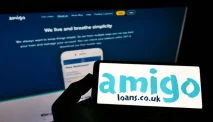A cosigner is someone who agrees to share the responsibility of repaying your loan if you can’t. Having a cosigner can improve your chances of getting approved and getting a lower interest rate. Most undergraduate students need a cosigner to qualify for a private student loan, but some graduate students may be able to get a loan without one. Discover Student Loans recommends that you apply with a creditworthy cosigner to increase your likelihood of approval and lower your interest rate.
After you submit your application, you will receive an instant credit decision. If you are approved, you will need to accept the loan terms and conditions, sign the loan agreement, and complete the self-certification form. You will also need to verify your identity and income, and provide any additional documents that Discover Student Loans may request. Once you complete these steps, your loan will be ready for disbursement. Discover Student Loans will send the funds directly to your school, and your school will apply them to your account.
How do I compare Discover Student Loans with other loans?
Before you take out a student loan, it is important to compare your options and choose the one that best suits your needs and goals. You should consider factors such as the interest rate, fees, repayment options, rewards, and customer service of each loan. You should also compare the total cost of each loan over time, and how it will affect your monthly budget and future plans.
One of the main types of loans that you should compare with Discover Student Loans are federal student loans.
Federal student loans are funded by the government and have some benefits that private student loans don’t, such as:
- Subsidized interest: If you qualify for a subsidized federal loan, the government will pay the interest on your loan while you are in school, during your grace period, and during periods of deferment. This can save you a lot of money in the long run.
- Income-driven repayment plans: If you have trouble making your monthly payments, you can apply for an income-driven repayment plan that will adjust your payments based on your income and family size. This can make your payments more affordable and manageable.
- Loan forgiveness programs: If you work in certain public service or nonprofit jobs, you may be eligible for loan forgiveness after making 120 qualifying payments. This means that the remaining balance of your loan will be forgiven after 10 years of service.
- Deferment and forbearance options: If you face financial hardship, such as unemployment, illness, or military service, you may be able to temporarily postpone or reduce your payments without affecting your credit score. This can give you some breathing room until you get back on your feet.
However, federal student loans also have some drawbacks that you should be aware of, such as:
- Limited borrowing amounts: Federal student loans have annual and aggregate limits on how much you can borrow, depending on your level of education and dependency status. These limits may not cover the full cost of your education, especially if you attend a private or out-of-state school. You may need to supplement your federal loans with other sources of funding, such as private loans, scholarships, grants, or savings.
- Higher interest rates: Federal student loans have fixed interest rates that are set by Congress each year. These rates may be higher than the rates offered by some private lenders, especially if you have good credit or a cosigner. You may be able to save money by getting a lower interest rate from a private lender.
- Fewer rewards and incentives: Federal student loans do not offer any rewards or incentives for good grades, on-time payments, or automatic payments. You may be able to get these benefits from some private lenders, such as Discover Student Loans, and use them to pay off your loan faster or save for the future.
Another type of loan that you should compare with Discover Student Loans are other private student loans. Private student loans are offered by various lenders, such as banks, credit unions, and online platforms.






